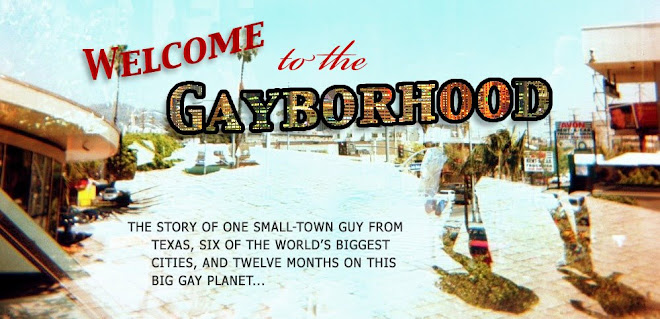Our minuscule cups of robusta-black coffee burn like punctuation marks into the table. Peppered around the open-aired cafe, groups of young men sit cross-legged and chatting in wicker chairs, peckishly sipping their fruit shakes and watching the passerbys. It seems that no cafe in Saigon is complete without such a scene, yet it's one you won't find anywhere outside them.
The vast majority of the 'gay space' in Saigon is hidden in plain view, from the cafes to the discos. But even in the handful of gay-only places, the watch-but-don't-interact rule prevails (except, of course at the male sauna).
Triet stirs in his condensed milk, distracted. "Well, you know, you chat with people online, and maybe somebody messages you and you say 'yeah, I've seen you around - you're cute' and you start talking"
This isn't a phenomenon necessarily bound to the gay community (see my post about Vietnam's 'evening cafes') but it's certainly amplified therein. The interesting thing expressed in Triet's angle, is that it effectively creates a space in the physical world that serves as an extension of an internet forum.
This really gets me thinking about the way our real lives, even our own bodies are coming to be filtered and altered through the medium of the internet. It's become so common as to be totally unnoteworthy for someone to do something, wear something, or even go someplace simply because "it will make a great Facebook photo". In a poststructuralist world where perception is reality, it's hard to say if 'real' reality or the perceived reality we document and curate is more legitimate.
With social networking sites and (certainly among gay people, though increasingly in the hetero community) internet dating subsuming our reality, we are given the opportunity to structure our image with a neurotic degree of control - a project that occasionally spills over and prompts us to alter our image, our own bodies or, through guilt of lying, our activities and interests based on how they will appear online. This can be as damaging as coming to view one's body as an internet commodity or as empowering as offering us a space to reflect on the kind of person we'd like to be. For gay people without private space in a culture where approaching strangers is taboo the project is often dichotomous but no less pervasive.
As the internet becomes ever more portable and ubiquitous, the boundary between our online selves and the real world is only going to become more blurred.
As the internet becomes ever more portable and ubiquitous, the boundary between our online selves and the real world is only going to become more blurred.


No comments:
Post a Comment